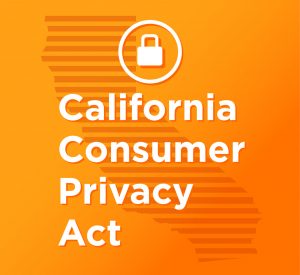 As part of our on-going coverage on the use and potential abuse of facial recognition AI, we bring you news out of Michigan, where the University of Michigan’s Law School, the American Civil Liberties Union (ACLU) and the ACLU of Michigan have filed a lawsuit against the Detroit Police Department (DPD), the DPD Police Chief, and a DPD investigator on behalf of Robert Williams—a Michigan resident who was wrongfully arrested based on “shoddy” police work that relied upon facial recognition technology to identify a shoplifter.
As part of our on-going coverage on the use and potential abuse of facial recognition AI, we bring you news out of Michigan, where the University of Michigan’s Law School, the American Civil Liberties Union (ACLU) and the ACLU of Michigan have filed a lawsuit against the Detroit Police Department (DPD), the DPD Police Chief, and a DPD investigator on behalf of Robert Williams—a Michigan resident who was wrongfully arrested based on “shoddy” police work that relied upon facial recognition technology to identify a shoplifter.
False Advertising, Trademark Infringement and TOS: Three Common Hashtagging Mistakes for Companies to Avoid
 When the first social media hashtag was used in 2007, users had no idea how ubiquitous hashtags would become. Today, hashtags are an essential part of our lives (and a subject we’ve been writing about for years). From marketing a business to garnering support for a cause, hashtags have become an essential part of our society. This may even be an understatement. For instance, from May 26, 2020, until June 7, 2020, alone, the #BlackLivesMatter hashtag was used over 47 million times on Twitter. 47 million. Talk about impact.
When the first social media hashtag was used in 2007, users had no idea how ubiquitous hashtags would become. Today, hashtags are an essential part of our lives (and a subject we’ve been writing about for years). From marketing a business to garnering support for a cause, hashtags have become an essential part of our society. This may even be an understatement. For instance, from May 26, 2020, until June 7, 2020, alone, the #BlackLivesMatter hashtag was used over 47 million times on Twitter. 47 million. Talk about impact.
SCOTUS Keeps It Practical in Honing the Definition of an Autodialer under the TCPA
On April 1, 2021, the U.S. Supreme Court resolved a long standing issue plaguing providers of text message services and the companies engaging in text message marketing. Lower courts have been split in defining what constitutes an “automatic telephone dialing system” or auto-dialer with the definition either limited to equipment whose capacity to generate, store and dial telephone numbers was limited to random or sequential numbers or to any device with the capacity to store and automatically dial stored numbers using, for example, a speed-dial function.
Fractionalized NFTs: Breaking Down Investing in Art
 Anyone who follows the crypto space knows that non-fungible tokens (NFTs) are all the rage of late. We have written on the subject previously on multiple occasions, particularly with respect to NFTs that tokenize works of digital art. (For a primer on digital art NFTs, check out prior posts here and here.)
Anyone who follows the crypto space knows that non-fungible tokens (NFTs) are all the rage of late. We have written on the subject previously on multiple occasions, particularly with respect to NFTs that tokenize works of digital art. (For a primer on digital art NFTs, check out prior posts here and here.)
California Sheds Light on Consumer Privacy Dark Patterns
Everything in Moderation: Artificial Intelligence and Social Media Content Review
 Interactive online platforms have become an integral part of our daily lives. While user-generated content, free from traditional editorial constraints, has spurred vibrant online communications, improved business processes and expanded access to information, it has also raised complex questions regarding how to moderate harmful online content. As the volume of user-generated content continues to grow, it has become increasingly difficult for internet and social media companies to keep pace with the moderation needs of the information posted on their platforms. Content moderation measures supported by artificial intelligence (AI) have emerged as important tools to address this challenge.
Interactive online platforms have become an integral part of our daily lives. While user-generated content, free from traditional editorial constraints, has spurred vibrant online communications, improved business processes and expanded access to information, it has also raised complex questions regarding how to moderate harmful online content. As the volume of user-generated content continues to grow, it has become increasingly difficult for internet and social media companies to keep pace with the moderation needs of the information posted on their platforms. Content moderation measures supported by artificial intelligence (AI) have emerged as important tools to address this challenge.
Privacy, Publicity and Copyright: The Risks of Using Candid Photography in Your Business
 Your company wants to use a picture taken outside of your office at an event you are hosting or sponsoring. Perhaps the image shows someone wearing your clothing or other product or using something showing your brand. Possibly you participated in a parade and want some images showing your company’s float or views from the float along the parade route. Maybe the image shows the outside of your building or the immediately surrounding area. You may have hired a photographer to take the pictures, they may have been taken by an employee, or someone may have found them on a third-party website or social media posts. The pictures may depict people who were on the street or present at the event, and they may include images of one or more buildings or local landmarks.
Your company wants to use a picture taken outside of your office at an event you are hosting or sponsoring. Perhaps the image shows someone wearing your clothing or other product or using something showing your brand. Possibly you participated in a parade and want some images showing your company’s float or views from the float along the parade route. Maybe the image shows the outside of your building or the immediately surrounding area. You may have hired a photographer to take the pictures, they may have been taken by an employee, or someone may have found them on a third-party website or social media posts. The pictures may depict people who were on the street or present at the event, and they may include images of one or more buildings or local landmarks.
Fungible Banksy: NFTs, Copyright and Digital Art Collide with the Burning of Morons
 We previously wrote on non-fungible tokens (NFTs) that represent art and how that concept is starting to be embraced by the art world. Enter Banksy, a celebrated graffiti artist and political activist whose real name and identity remain unconfirmed. For the past couple of decades, Banksy’s popularity has grown, including a celebrity following, and some of his art pieces have fetched $500,000 or more. One of Banksy’s most famous stunts was having one of his pieces, Girl with Balloon, self-destruct right after being sold at a Sotheby auction. (A shredding mechanism was built into the golden frame holding the work and, as soon as the auctioneer’s gavel fell, selling the piece for about $1.4 million, the piece started passing through the frame which started shredding the canvas.) The winning bidder ultimately opted to keep the piece in its shredded form, and Sotheby’s described the event as “the first work in history ever created during a live auction.” The piece has since been on display at a prestigious German art gallery, and experts suspect the value has increased at least by 50 percent. Go figure.
We previously wrote on non-fungible tokens (NFTs) that represent art and how that concept is starting to be embraced by the art world. Enter Banksy, a celebrated graffiti artist and political activist whose real name and identity remain unconfirmed. For the past couple of decades, Banksy’s popularity has grown, including a celebrity following, and some of his art pieces have fetched $500,000 or more. One of Banksy’s most famous stunts was having one of his pieces, Girl with Balloon, self-destruct right after being sold at a Sotheby auction. (A shredding mechanism was built into the golden frame holding the work and, as soon as the auctioneer’s gavel fell, selling the piece for about $1.4 million, the piece started passing through the frame which started shredding the canvas.) The winning bidder ultimately opted to keep the piece in its shredded form, and Sotheby’s described the event as “the first work in history ever created during a live auction.” The piece has since been on display at a prestigious German art gallery, and experts suspect the value has increased at least by 50 percent. Go figure.
Smart Technology in Commercial Real Estate
 “Hey Siri…” “Alexa…” “Okay Google…” These are just some of the buzzwords and phrases that have entered day-to-day vocabulary as a result of the explosion of smart technology. Internet of Things (IoT) devices are in our cars, in our workplaces and on our bodies. But nowhere is smart technology more prevalent than in our homes. The array of services that are available coupled with the growing number of companies and service providers eager to innovate, should only grow this technology’s market share in the coming years.
“Hey Siri…” “Alexa…” “Okay Google…” These are just some of the buzzwords and phrases that have entered day-to-day vocabulary as a result of the explosion of smart technology. Internet of Things (IoT) devices are in our cars, in our workplaces and on our bodies. But nowhere is smart technology more prevalent than in our homes. The array of services that are available coupled with the growing number of companies and service providers eager to innovate, should only grow this technology’s market share in the coming years.
Defying Data Gravity: Vertical Cloud Computing, Hybrid Tools and Usage Rights
The last decade saw explosive growth in enterprise migration to the cloud, a trend driven by the promise of lower overhead costs and greater scalability. Given this, many have made the leap and moved both non-mission-critical workloads and mission-critical functionality into the cloud.
This is where “data gravity,” a phrase coined by Dave McCrory comes into play. Data gravity is the “effect that attracts large sets of data or highly active applications/services to other large sets of data or highly active applications/services, the same way gravity attracts planets or stars.” So, in the simplest terms, data gravity is the idea that increasing volumes of data can cause data to function like an anchor, making it increasingly difficult to move as the data in question continues to increase.







